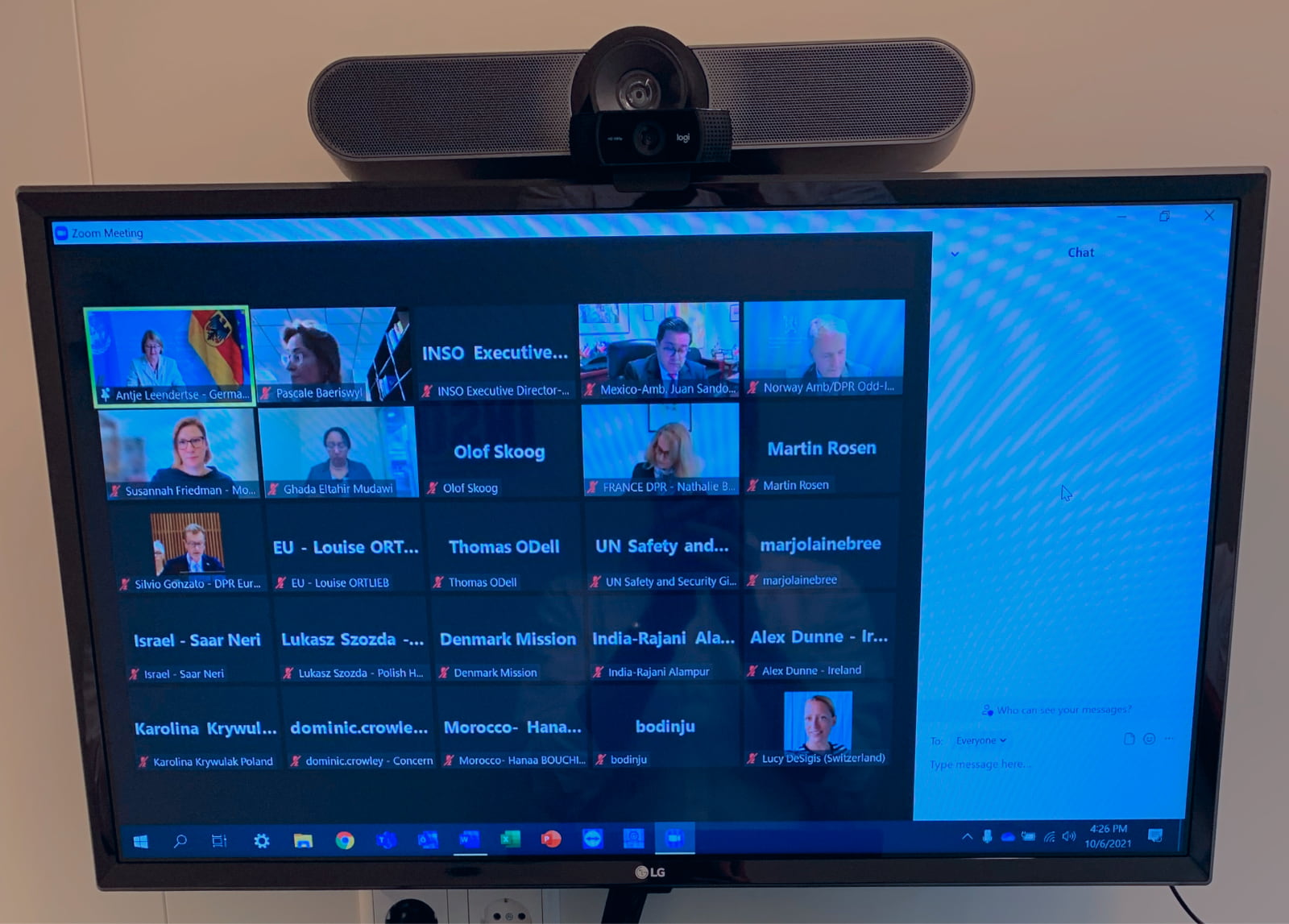The objective of this discussion series was to identify the main challenges linked to the safety and security of humanitarian and medical workers in armed conflicts, and to explore detailed practical solutions and best practices that can be adopted by the international community, both in the short and the long term.
INSO participated in the first and second discussions, and our related statements can be found at these links.
Below you can find our statement made by INSO’s Executive Director Nic Lee during yesterday’s launch event:
“I’d like to start by thanking the EU delegation for initiating this discussion series. INSO was founded 10 years ago to address many of these same issues so we are delighted to see them getting the high-level attention they deserve.
Overall, we find the Outcome Document very coherent, so I just want to provide three brief operational updates as we move towards considering next steps.

During the latest online discussion.
First, in relation to Key Recommendation #2 on a standardised incident database, we have already been fully funded to deliver this objective by several of the participating donors including Germany, Switzerland, the UK, the Netherlands, Norway and Canada.
The project is called the Conflict & Humanitarian Data Centre, or CHDC for short.
The design and development stages were completed in 2020 and we have just finished importing our country level data, with close to 1 million entries so far.
To maintain the database going forward, we have concluded information sharing agreements with more than 1,000 operational organisations and have permanently deployed over 700 staff to the field for direct data gathering and verification.
The database is now in a live trial phase, and while access has been restricted so far, I am happy to say that it will become available to the wider community by the end of March 2022.
Second, in relation to Key Recommendation #3 on field support services, as the global lead agency, I would just like to reaffirm our commitment to delivering these vital services – which include training, orientations, analysis and alerts – and reassure you that they are already fully accessible to national NGOs who make up close to 40% of our global partners.
We asses that existing field platforms can be maintained with no additional funding, and that the principal need going forward will be in responding quickly to new conflicts and, to that end, we have established a new start-up fund which is already in use for Lebanon, Mozambique and Haiti.
Third and finally, in relation to Key Recommendation #4 on security risk management and localisation, I would reiterate our commitment to support global initiatives on the protection of aid workers and, to that end, we have established a new centre of excellence right here in The Hague, where our Global Analysis & Research Team is working to inform policy with reliable evidence-based data and field perspectives.
Thank you again for the opportunity to participate and contribute to this discussion.”
